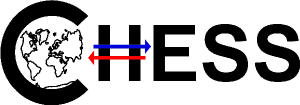The training course on the theory, analytics and interpretation of stable water isotopes and carbon isotopes in the coupled Earth System at University of Bergen during 25-28 January 2021 provided an in-depth introduction to understanding the principles and applications of stable water and carbon isotopes across different Earth system components. Due to pandemic restrictions, the course had to be given in a hybrid setup. Luckily, the University of Bergen was open to laboratory work during that week, and the 9 participants from Bergen and Tromsø could gather partly online, partly in person for conceptual model exercises, laboratory experiments and data analysis during four intensive days. During the morning session, the five lecturers from Bergen and Tromsø introduced participants to the theory and analytical procedures to measure the stable isotope composition of water and carbon in different samples at the national reference laboratory FARLAB at UiB, and recommend sample collection procedures for different target systems were to prepare participants for their own planned fieldwork. In the afternoons, adhering to pandemic safety regulations, the participants created and performed water evaporation experiments and a carbonate reaction experiment at FARLAB, obtained their own calibrations, and tested predictions with a Rayleigh fractionation model with their own analytical results. On the last day, all participant gave a short presentation on the results. In an evaluation, all participats answered that they have learned a lot, even though it also became clear that online participation could clearly not replace the lab experience. We hope to repeating our training course next year under more regular conditions. Many thanks to Pål Tore Mørkved, Ulysses Ninnemann, Giuliana Panieri and Hans Christian Steen-Larsen for their contributions to the course.
Text and photos: Harald Sodemann


